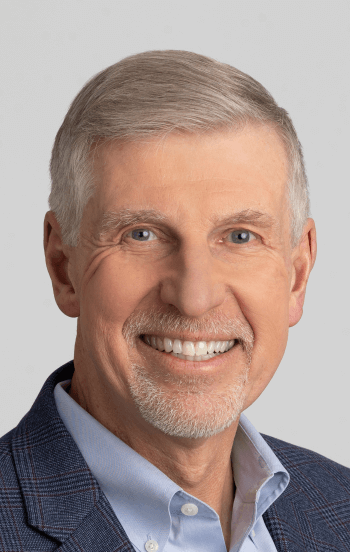
2/07/2024
Consumers are a valuable part of the standards development process, providing critical, first-hand perspectives on how products will be perceived and used in the home.
As part of an ongoing Q&A series with consumer advocates, the American National Standards Institute (ANSI) spoke with Don Mays, founder of Product Safety Insights LLC, a consulting practice that provides product safety program audits and teaches best practices for developing product safety programs. Mays also chairs ASTM International’s consumer products committee (F15), and in 2022 received the Margaret Dana Award, F15’s highest honor, for his “outstanding contributions to advancing voluntary standards for consumer safety products.” He is president of the Society of Product Safety Professionals, a board member of Kids In Danger, and an elected official on the Board of Representatives in Stamford, Connecticut.
ANSI: How has your career path led you to your role as chair of ASTM’s F15 committee?
Mays: My career has focused on product safety and performance testing for manufacturers and retailers as well as for consumers. I worked as senior director of product safety and technical policy for Consumer Reports, as vice president of retail and consumer product services for Intertek, as managing director of safety and quality for Deloitte, and as chief safety and quality officer for Samsung. I offer a unique perspective as someone who understands the competitive pressures of getting new products to the market as quickly and as economically as possible; from a consumer perspective, I understand the need to trust that all the products in the marketplace are produced with a high degree of integrity and safety.
ANSI: What do you most enjoy about serving as the ASTM F15 committee chair?
Mays: The consumer voice is critical to ensuring the safety of the products we buy and use. ASTM, like other standards development organizations, gives consumers the opportunity to influence the development of safety standards that cover numerous products—including toys, nursery products, furniture, portable pools, playground equipment, and much more. ASTM’s F15 Committee on Consumer Products has more than 1,400 members among 65 subcommittees and covers more than 100 standards. The addition of more consumer members will enhance the diversity of these subcommittees and enrich the dialogue about proposed standards. Consumer voices have had far-reaching impact: some of the standards developed by ASTM, such as requirements for strollers and highchairs, have been incorporated into federal laws, making compliance with those standards mandatory.
Consumers who participate on a voluntary standards committee bring a different perspective from the manufacturers, government regulators, and testing labs. They’re using these products every day, and they join to effect change. They dedicate their time to help make the world a safer place. I welcome consumer participation to help shape our future standards, and encourage consumers to consider joining ASTM committees, as well as other standards committees of interest.
ANSI: You have done a lot of work surrounding recalls. What do you think consumers should know?
Mays: It would benefit consumers to recognize that recalls are far more than a daily occurrence, and that there are many types of recalls. In 2021, federal agencies, including the Food and Drug Administration, the U.S. Department of Agriculture, the U.S. Consumer Product Safety Commission, and the National Highway Traffic Safety Administration announced more than 2,500 recalls, covering more than one billion units. I regularly study recalls and report on my analysis. [Editor’s note: See a recent report.] Most recently, I found that only about one-quarter of the published recalls were for products that violated a regulation, standard, or rule. The great majority of recalls were conducted because a safety hazard was identified after the product went to market, sometimes resulting in injury to the consumer. But federal agency-announced recalls typically only involve products that pose a health or safety problem, or don’t comply with a regulation or standard. There may be other “secret recalls” handled by manufacturers for quality or performance issues. Those recalls are rarely made public and are generally orchestrated between the manufacturer and the retailer of the product. Because those recalls are secret, consumers won’t know about them unless they call the company. So, if consumers have a problem with a product, they should file a complaint with the manufacturer. But, if it’s a safety problem, they should also report it to the responsible government agency.
ANSI: In addition to voluntary standards participation, you are very supportive about independent third-party testing, recently releasing a report on the topic. Why is it so important?
Mays: I like to remind people that Ronald Reagan said, “Trust but verify,” and Hillary Clinton said, “Distrust and verify.” In both cases, the main point is that it always important to have an independent verification process to ensure the test results are right. Engaging independent third-party laboratories to qualify a product’s integrity is the gold standard for manufacturers. Third-party lab testing can eliminate confirmation biases that can lead a company to wrong conclusions, and can help provide a company with needed assurances before launching a new product into the marketplace. In addition, data from qualified third-party labs can help defend a company against product liability lawsuits and government agency investigations. But failure to develop a comprehensive testing program with a competent laboratory can result in severe consequences, such as recalls, reputational damage, and lost sales.
There are many advantages to using third-party labs through various stages of a product lifecycle. Third-party data can help validate internal test data, provide needed assurances before a product is launched, protect a company in the event of a product liability lawsuit or government investigation, and provide independent root cause analysis when something goes wrong. Using third-party labs also demonstrates a high level of due diligence to ensure product integrity. But selecting the right lab or labs is a critical first step. It’s important to qualify labs before engaging them to conduct any testing and to verify that they have the proper experience and accreditations to perform the desired work.
